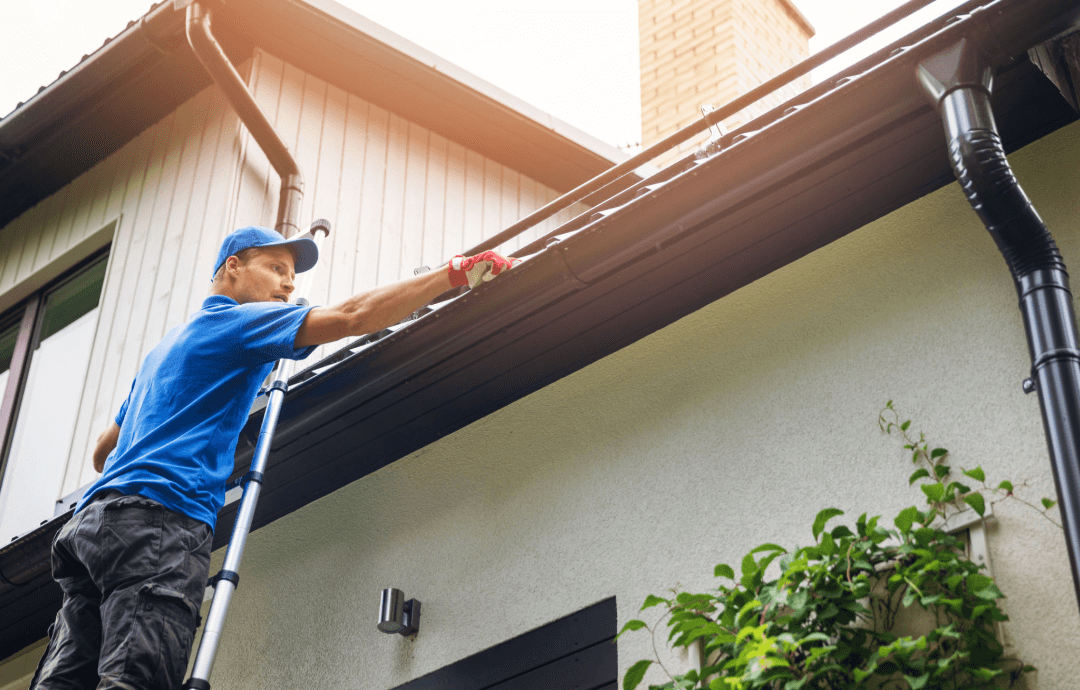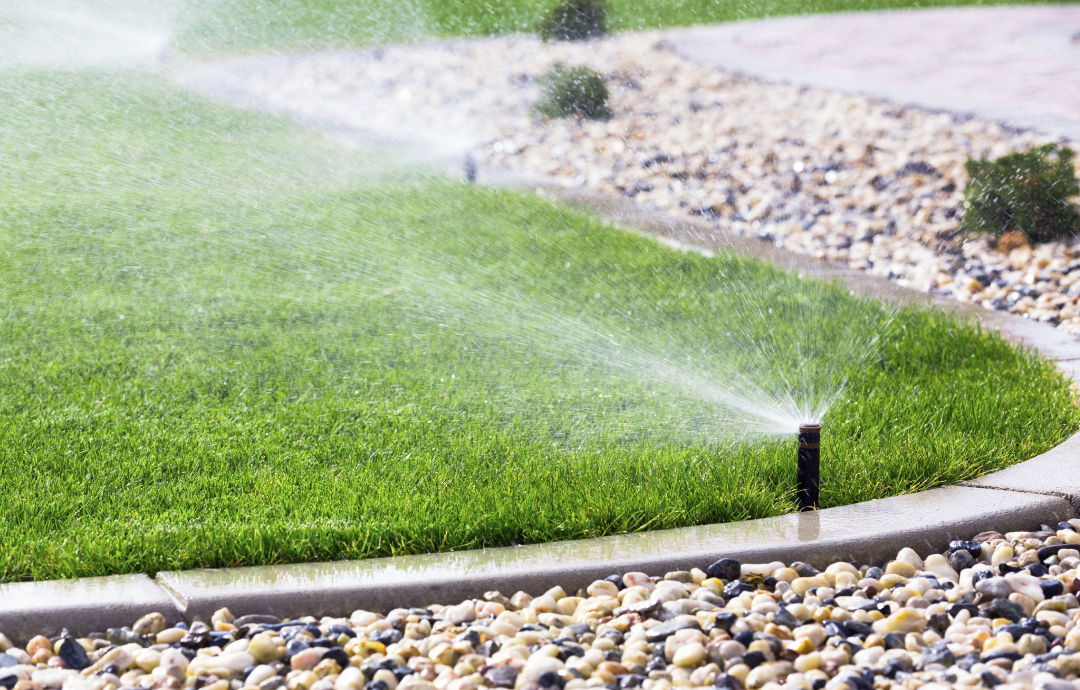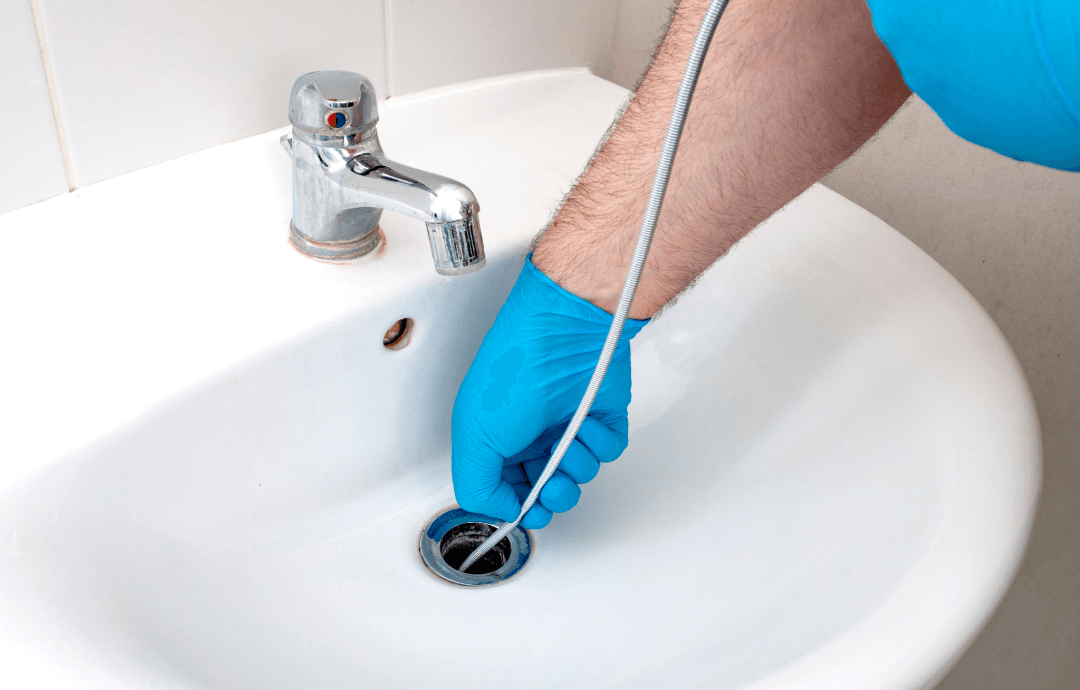As the temperatures rise, it’s essential to ensure your home’s plumbing is ready to handle the summer heat. Proper summer plumbing maintenance can prevent costly repairs and keep your home running smoothly. From checking for leaks to maintaining your water heater, proactive care goes a long way in preserving your plumbing system’s efficiency and longevity.
With over 30 years of experience serving Tyler County and the surrounding areas, Service by Scott is here to help you stay ahead of any plumbing issues. Our team of licensed professionals is dedicated to providing top-notch service, whether for residential repairs, commercial installations, or 24/7 emergency services. This article will share 10 expert tips to beat the heat and maintain your plumbing system all summer.

Inspect and Clean Your Gutters
During the summer, it’s crucial to keep your gutters in top shape as part of your overall summer plumbing maintenance. Gutters are vital in directing water away from your home, preventing potential water damage and costly repairs.
Check for Blockages
Start by inspecting your gutters for any blockages. Leaves, twigs, and other debris can accumulate over time, obstructing the flow of water. Use a ladder to carefully examine the gutters and remove any visible debris. A garden trowel or a gutter scoop can make this task easier and more efficient.
Ensure Proper Drainage
After clearing the debris, ensure your gutters are draining properly. Water should flow smoothly through the downspouts and away from your home’s foundation. If you notice any standing water or slow drainage, it might be time to clean the downspouts or check for clogs further down the line. Proper drainage protects your home’s structure and prevents potential plumbing issues caused by water buildup around your foundation.
Check for Leaks and Drips
Summer is the perfect time to check your home for leaks and drips as part of your summer plumbing routine. Addressing leaks early can save water and prevent further damage to your plumbing system.
Inspect Faucets and Pipes
Begin by inspecting all faucets, both indoors and outdoors. Look for any signs of dripping or pooling water around the base of the faucets. Check under sinks and around exposed pipes for moisture or rust, which can indicate a leak. Outdoor spigots and hoses should also be examined for leaks, especially if they are used frequently during the summer months.
Repair Immediately
If you discover any leaks or drips, it’s important to repair them as soon as possible. Even small leaks can waste water and lead to higher utility bills. In many cases, a simple fix like replacing a washer or tightening a connection can resolve the issue. For more serious leaks, or if you’re unsure how to make the repairs yourself, don’t hesitate to contact a professional. Service by Scott is always ready to help with any plumbing repairs, ensuring your system runs efficiently throughout the summer.

Maintain Your Sprinkler System
A well-maintained sprinkler system is essential for keeping your lawn green and healthy during the hot summer months. Regular sprinkler system maintenance ensures efficient water usage and helps avoid costly repairs later. Integrating sprinkler care into your summer plumbing routine is smart for any homeowner.
Regular Inspections
Start by conducting a thorough inspection of your sprinkler system. Check for any leaks, clogs, or damaged sprinkler heads. Turn on the system and walk around your yard, looking for areas where water isn’t reaching or is pooling excessively. Sprinkler heads that are misaligned or broken should be repaired or replaced to ensure even water distribution.
Optimize Water Usage
To make the most of your sprinkler system, set timers to water your lawn early in the morning or late in the evening. This reduces water evaporation and ensures your plants get the moisture they need. Additionally, consider installing rain sensors or smart controllers that adjust watering schedules based on weather conditions. These devices can help you conserve water and maintain an efficient summer plumbing system.
Service Your Water Heater
Your water heater works hard year-round, but summer is an ideal time to give it some extra attention as part of your summer plumbing maintenance. Regular servicing can extend the life of your water heater and ensure it operates efficiently when you need it most.
Flush the Tank
Over time, sediment and mineral deposits can build up in your water heater tank, reducing efficiency and potentially causing damage. To maintain optimal performance, flush the tank to remove these deposits. This process involves draining the water heater and then refilling it. If you’re unsure how to do this, consider hiring a professional. Service by Scott offers expert water heater maintenance to keep your system running smoothly.
Check Temperature Settings
Another important aspect of water heater maintenance is checking the temperature settings. The recommended setting is typically around 120 degrees Fahrenheit. This temperature is hot enough to meet your household needs while preventing scalding and reducing energy consumption. Adjusting the thermostat to this optimal setting can improve efficiency and save on energy bills.
Monitor Water Pressure
Maintaining the right water pressure in your home is crucial for the health of your plumbing system. Too high or too low pressure can lead to various issues, from leaks to inefficient appliance performance. Including water pressure monitoring in your summer plumbing routine can help prevent these problems.
Check for Changes
Regularly check your home’s water pressure to identify any sudden changes. High water pressure can strain your pipes and appliances, while low pressure can indicate a blockage or leak. You can often detect water pressure issues by noticing changes in the flow from your faucets or showerheads.
Use a Pressure Gauge
To get an accurate reading, use a water pressure gauge. Attach the gauge to an outdoor faucet and turn on the water to measure the pressure. The ideal range for residential water pressure is typically between 40 and 60 psi. If your pressure falls outside this range, you may need to adjust your pressure regulator or seek professional assistance.
Inspect Your Sewer Lines
As part of your comprehensive summer plumbing checklist, inspecting your sewer lines is crucial. While sewer line issues can occur at any time of the year, summer can exacerbate existing problems due to increased usage and potential environmental factors. Taking the time to inspect your sewer lines can help prevent costly and inconvenient plumbing issues down the line.
Look for Warning Signs
Look for common indicators of sewer line problems, such as slow drains, foul odors, or water backups. These signs may indicate issues with your sewer lines that require prompt attention. If you notice any of these warning signs, it’s essential to address them promptly to prevent further damage to your plumbing system.
Schedule a Professional Inspection
While some sewer line issues may be visible to the naked eye, others may require a professional inspection. Consider scheduling a professional sewer line inspection to thoroughly assess the condition of your pipes. A professional plumber can use specialized equipment, such as video cameras, to identify issues within your sewer lines and recommend the appropriate course of action.
Prepare for Vacation
Before you embark on your summer getaway, taking steps to protect your home’s plumbing system while you’re away is essential. Properly preparing your plumbing for vacation can help prevent leaks or water damage and give you peace of mind while you’re enjoying your time away.
Turn Off the Main Water Supply
One of the most crucial steps in preparing for vacation is to shut off the main water supply to your home. This ensures that no water is flowing through your plumbing system while you’re away, minimizing the risk of leaks or burst pipes. Locate the main shut-off valve in your home and turn it off before you leave. If you’re unsure where the shut-off valve is located or how to turn it off, consider asking a professional plumber for assistance.
Inspect for Leaks Before Leaving
Before you depart, take some time to inspect your home for any signs of leaks or plumbing issues. Check under sinks, around toilets, and in the basement or crawl space for any signs of moisture or water damage. If you notice any leaks, address them promptly to prevent further damage while you’re away.

Clean Your Drains
Maintaining clean drains is essential for a smoothly functioning plumbing system, especially during the summer months when household activity tends to increase. Regular drain cleaning as part of your summer plumbing routine can prevent clogs and keep water flowing freely throughout your home.
Prevent Clogs
One of the primary reasons for drain blockages is the buildup of hair, grease, soap scum, and other debris. To prevent clogs, make it a habit to clean your drains regularly. Remove hair from shower drains using a drain snake or hair catcher, and avoid pouring grease or oil down kitchen sinks. Additionally, use drain strainers to catch food particles in kitchen sinks and dispose of them properly.
Use Safe Cleaning Methods
When cleaning your drains, opt for safe and environmentally friendly methods to avoid damaging your pipes or harming the environment. Baking soda and vinegar can be an effective natural cleaner for breaking down organic matter and eliminating odors. Alternatively, commercial drain cleaners can be used sparingly but should be handled with caution and according to the manufacturer’s instructions.
Insulate Exposed Pipes
Protecting your home’s exposed pipes from the summer heat is vital for maintaining your plumbing system’s integrity and preventing potential damage. Insulating exposed pipes as part of your summer plumbing maintenance routine can help regulate water temperature and reduce the risk of pipe bursts or leaks.
Protect from Heat
Exposure to high temperatures can cause unprotected pipes to expand and contract, leading to stress on the plumbing system. To prevent this, insulate exposed pipes with foam pipe insulation sleeves. These sleeves provide a barrier against heat transfer, helping to maintain consistent water temperatures and reducing the strain on your plumbing system.
Prevent Future Issues
In addition to protecting against the summer heat, insulating exposed pipes can also prevent future plumbing problems. Insulation helps to minimize the risk of condensation forming on cold pipes, which can lead to moisture buildup and potential mold growth. By insulating your pipes, you can ensure your plumbing system remains in optimal condition year-round.

Regularly Check Your Sump Pump
Ensuring your sump pump is working properly is crucial for protecting your home from water damage, especially during the summer when heavy rains and storms are more common. Regularly checking your sump pump as part of your summer plumbing maintenance routine can help prevent basement flooding and costly repairs.
Test Functionality
Start by testing the functionality of your sump pump to ensure it activates when needed. Pour water into the sump pit to trigger the float switch and activate the pump. Listen for the sound of the pump running and verify that water is being discharged properly from the pit. If your sump pump fails to activate or doesn’t pump water effectively, it may be time for repairs or replacement.
Backup Power Supply
Power outages are not uncommon during summer storms, which can render your sump pump useless if it relies solely on electricity. Consider installing a backup power supply, such as a battery backup or generator, to ensure your sump pump continues to operate during power outages. Regularly check that the backup power supply is functioning correctly and replace batteries as needed.
Conclusion: Summer Plumbing with Service by Scott
In the sweltering heat of summer, it’s easy to overlook the importance of maintaining your home’s plumbing system. However, neglecting your plumbing can lead to costly repairs and headaches later. That’s why Service by Scott is here to equip you with the top 10 summer plumbing tips to keep your plumbing system running smoothly throughout the season.
From inspecting and cleaning your gutters to ensuring your sump pump is ready for action, these tips are designed to help you proactively address common plumbing issues before they escalate into emergencies. By performing these simple maintenance tasks, you can protect your home from water damage, conserve water, and save money on utility bills.
Regular maintenance is the key to a healthy plumbing system, and Service by Scott is here to assist you every step of the way. With over three decades of experience serving Woodville, Texas, and the surrounding areas, our team of licensed professionals is committed to providing top-notch service and reliable solutions for all your plumbing needs.
So don’t wait until a plumbing disaster strikes. Take action today to ensure your home’s plumbing is in top condition this summer. Contact Service by Scott to schedule your summer plumbing maintenance and enjoy peace of mind knowing your home is protected by experts you can trust. Let us help you beat the heat and keep your plumbing running smoothly all season.
FAQs
Why is summer a critical time for plumbing maintenance?
Summer brings increased water usage and higher temperatures, which can exacerbate plumbing issues like leaks and clogs. Regular maintenance during summer helps prevent these problems and ensures your plumbing system functions efficiently.
How often should I inspect my water heater?
It’s recommended to inspect your water heater at least once a year, preferably before the start of summer. Regular inspections can help identify any issues early and extend the lifespan of your water heater.
What are the signs of a sewer line problem?
Common signs of sewer line problems include slow drains, foul odors, gurgling noises from drains, and sewage backups. If you notice any of these signs, it’s important to address the issue promptly to prevent further damage.
Can I clean my drains without chemicals?
Yes, there are several eco-friendly methods for cleaning drains. For example, you can use a mixture of baking soda and vinegar followed by hot water to break down debris and eliminate odors. Additionally, mechanical methods like using a drain snake or plunger can be effective for removing clogs.
Why is water pressure monitoring important?
Monitoring water pressure is essential to ensure your plumbing system functions properly. High water pressure can cause stress on pipes and appliances, while low water pressure may indicate a leak or blockage. Maintaining optimal water pressure helps prevent damage and ensures efficient water usage.

